The demand for reliable and efficient custom cables has never been higher in the fast-paced world of technology. Amphenol is a leader in this area, providing many different types of products to meet various industry needs. This blog post will discuss some of the different kinds of custom cable solutions offered by Amphenol, as well as what they can be used for and how they are made using cutting-edge technology. It also gives examples of where these could improve workflow efficiency and ensure connectivity and adaptability in complex modern environments, so readers should get a general idea about why it’s important to know them all now. With knowledge about what Amphenols’ offer entails, businesses will have more information when making decisions about their own cable solution, which could lead to better performance outcomes being achieved in every application area.
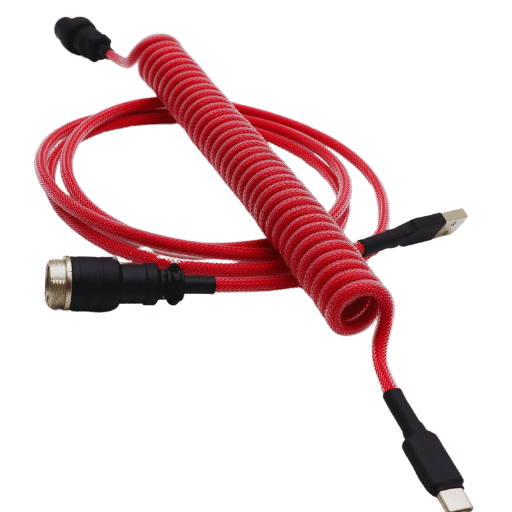
Custom cables are personalized solutions that cater for particular specifications not met by normal cables. Unique needs in different applications, such as custom data transmission, environment tolerance, or space limit prompts for the use of bespoke cables. This helps a business work better by making sure they are efficient and reliable in terms of performance; they can also be used with other systems already in place and comply with industry standards thus becoming more dependable and efficient too.
Custom cables provide various businesses with many benefits. First, such cables can be built to correspond with precise specifications; thus, the best performance and signal integrity are guaranteed, lowering chances of losing data or experiencing transmission errors. Second, they may have enhanced durability due to the materials and arrangement used during their design process, which also ensures the weatherproofing and flexibility needed in rugged environments. Thirdly, custom cables ease integration into existing systems by allowing smooth interfacing between different parts that should work together without any problems arising from their connection points. By so doing it saves both time taken for installation as well money required for additional adaptation components because everything fits perfectly well with each other. Last but not least, always go for them as this leads to better reliability where these solutions are more likely than not to fail at some point, causing inefficiency in the system, hence poor adaptability towards operations being carried out by businesses today.
Various sectors need custom cables for different reasons; telecommunications rely on them for high-speed data transfer, which maintains signal fidelity over extended distances as well as working with unique infrastructural setups; aerospace applies these lightweight and tough wires in places with drastic temperature changes coupled with vibrations while medical sector designs them so that they meet strict safety rules but still offer good performance thus ensuring stable links between various equipments like imaging machines or patient monitors — this flexibility throughout numerous applications highlights versatility and significance of customized cabling solutions towards better operational outcomes.
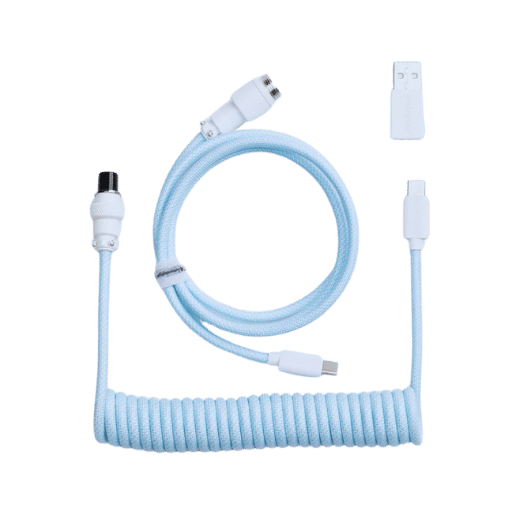
The Amphenol Custom Cable Configurator is packed with features that make it easy and quick to design cables. Here are some of the things it can do:
These functionalities collectively enable this tool to meet wide-ranging demands within different sectors, hence making custom designs more efficient.
In order to get a price estimate using this Amphenol Custom Cable Configurator, do the following:
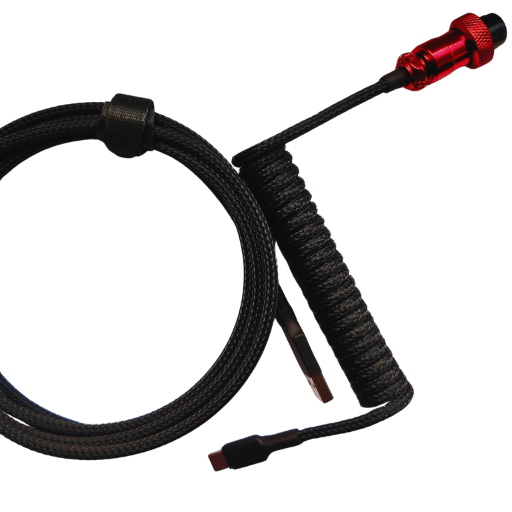
Amphenol always complies with rigorous quality standards. This guarantees that every custom cable meets industry-specific performance levels. The business has an ISO 9001 certification, which shows its dedication to maintaining best practices in quality management systems. Furthermore, a lot of their products carry UL (Underwriters Laboratories) or RoHS (Restriction of Hazardous Substances) certifications, indicating that they meet safety requirements and environmentally friendly production methods. All these qualifications prove how deeply committed Amphenol is to delivering dependable, high-performance customized cables that satisfy customer needs as well as regulatory demands alike.
Amphenol supplies a wide range of cables for many different industries. We have telecommunications, data transmission, power, and industrial automation cables among our products. For high-performance needs, we offer coaxial, fiber optic, and multi-conductor cables designed to be reliable and efficient at the same time. In addition to these standard items, we also have the ability to make custom designs that will work best in your specific operational environment while still meeting industry standards for both quality and safety. With such an extensive selection, it’s no wonder why so many people choose us as their go-to provider when they need flexible yet trustworthy cable solutions!
Amphenol’s determination to quality and innovation is often brought out in customer reviews and event analysis, which provide examples of successful collaboration as well as project outcomes. Typically, clients appreciate the company because of its agility and ability to come up with bespoke resolutions that beat their expectations. For example, one study described how Amphenol made custom fiber optic cables that helped a large telecommunications firm improve data transfer speed by 25% caused by latency reduction. Another testimonial came from an industrial automation client who said that without Amphenol’s multi-conductor cables, systems would have performed poorly leading to more downtime hours worked through in order not only save lives but also money for businesses alike; thus highlighting them as critical components necessary for any operational success within different industries.
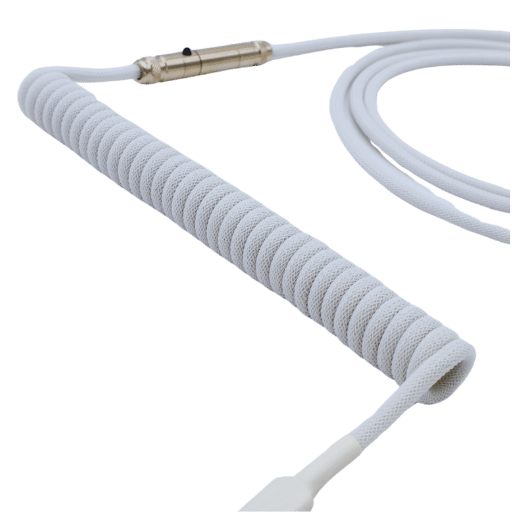
Various uses necessitate copper cables because of their excellent electrical conductivity and affordability. Amphenol offers a variety of copper cable assemblies that can be tailored to fit the needs of different applications. This includes coaxial cables, multi-conductor cables, and power cables.
Technical Specifications:
These features can be customized so as to meet the specific needs of customers in different industries such as telecommunications, automotive or industrial automation. Moreover all these copper cables are subjected through robust tests that ensure they meet international standards like UL, IEC and ISO hence they perform well in critical applications where reliability is paramount.
Fiber optic cables are vital for modern communication systems because they can send information over long distances with little loss. These wires use light as a medium of transmission and consist of a glass or plastic core surrounded by a cladding layer that reflects back into the core, thus preserving signal integrity. Amphenol offers single-mode and multi-mode fiber optic solutions, which support different bandwidth requirements and distances.
Technical Specifications:
Amphenol’s design and manufacturing processes follow rigorous testing procedures that comply with international standards, including TIA/EIA, ISO/IEC, etc., so their products perform well even under demanding conditions.
Radiofrequency (RF) cables are designed to transmit high-frequency signals with the least possible loss and disturbance. They are used in a range of applications, including telecommunications, broadcasting, and radar systems. Usually consisting of a conductive core, dielectric insulation, and a metal shield, RF cables allow efficient signal transfer for both analog and digital communications. Here are some things you might want to consider:
Technical Specifications:
Amphenol RF cables meet industry standards, which means they have been engineered while taking into consideration what is expected from such products used in diverse environments ranging from commercial broadcasting right up to military installations where reliability cannot be compromised due to safety reasons. These cables undergo thorough testing against specified parameters during their production phase so as to guarantee that they can withstand unique challenges imposed upon them by high-frequency communication systems.
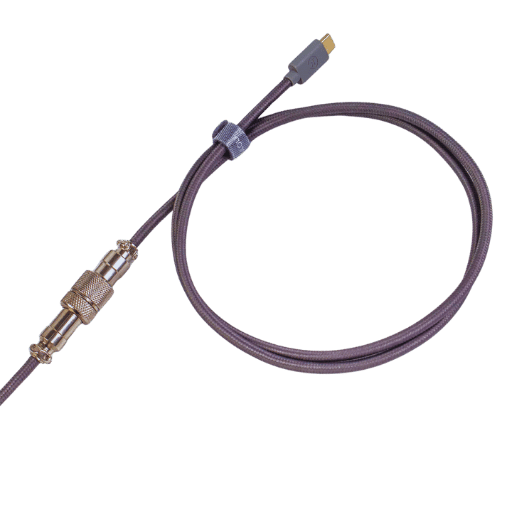
In order to make sure that the custom cables last long and are dependable, there needs to be taken into practice several critical techniques through the cable designing and manufacturing process. First of all, it is important to choose materials that can withstand different environmental conditions like moisture content, temperature changes among others while also being physically tough. Secondly, strong shielding methods should be used so as to offset any effects caused by Electromagnetic Interference (EMI) thus keeping signal integrity intact. Moreover, inserting strain relief systems at points where connections are made reduces strains on these wires during their installation or use. Manufacturers should also do regular life cycle assessments coupled with stress tests which will prove that such wires maintain performance standards with time. The manufacturers need to consider these factors so that they can produce cables that are more than capable of meeting industry requirements for reliability and durability.
Engineers use their knowledge to develop unique wires and cables. This entails interpreting the needs of a client into a usable product. They do this by choosing materials that are in line with expected performance levels while still meeting industry standards. In addition, they employ sophisticated computer programs for modeling such items virtually so that electrical, thermal, and mechanical properties can be analyzed before production starts on them physically. Engineers also work together with other departments like manufacturing or quality assurance where possible problems may arise during design stages thus saving time and resources. Further still, engineers are always looking out for new technology breakthroughs as well as current trends that could enable better methods in wire making; this ensures that innovations are made within the design process itself, hence accommodating changing consumer needs more effectively. It is through these contributions that reliability improvement, efficiency increase, and overall good quality attainment of customized cables are improved.
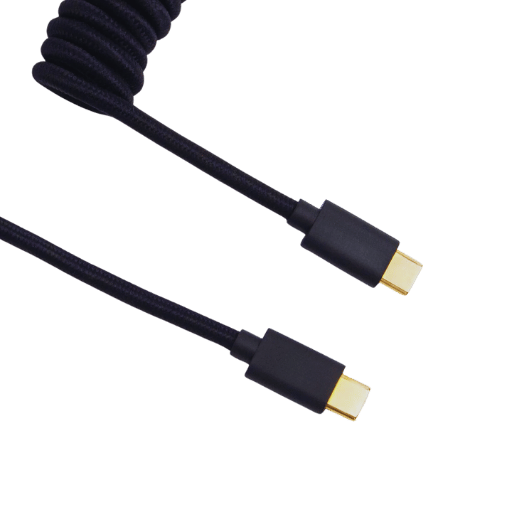
The first consultation is very important in knowing exactly what the project needs. At this time, engineers must collect as much information as possible, such as where the cable will be used, what the surroundings are like, how much power it needs to handle, and if there are any special rules or regulations that apply to its use. Performance should also be clarified, including voltage levels, current ratings, and temperature limits; likewise, budget restrictions need to be brought up alongside schedule demands. Effective communication during this phase ensures a shared vision among all parties involved, thus setting the stage for the successful development of unique cables.
To start, the process of design and approval involves making detailed drawings and specifications from the initial consultation information. They use advanced software to create accurate models whose compliance with stated performance measures and regulatory benchmarks can be ascertained. The next step is subjecting the proposed plan to internal scrutiny, where different departments give their input on what they think needs more attention based on different views taken; this could lead to a prototype if necessary. During such times, tests are done mainly to determine whether it meets all requirements and evaluate how it performs under various conditions. Once verified against set conditions, interested parties will give a go-ahead, thus allowing manufacturing stage realization. Good record keeping is important in this case since it provides clear details about design choices made, changes effected, and endorsements given, which may be needed later for reference purposes besides quality control reasons too.
The amount of time it takes to complete custom cable design projects greatly varies depending on different things such as the intricacy of their creation, materials used and volume produced. In most cases, this stage might go on for a couple of weeks or even months if there are too many modifications made during approvals. Once prototypes have been validated after getting approved with designs, the manufacturing process can take between a few days to some weeks while considering logistics like shipping methods used and where they should be sent, among others, also affects delivery time frames. The stakeholders must, therefore, come up with clear timelines from the beginning so that everyone’s expectations can be met within reasonable periods, hence promoting timely completion of tasks. Effective management skills coupled with good communication strategies play a critical role in ensuring that final products get delivered promptly as scheduled while minimizing unnecessary delays.
A: Amphenol manufactures a wide variety of custom cable assemblies, including those made for telecommunications, data networks, and industrial applications. We can build your customized cable exactly according to your specifications.
A: As a reliable leader in the industry of wire and cable manufacture, we are known for producing high-quality and dependable products. We also offer value-added services such as rapid prototyping or designing from scratch so that you get what is right for your application.
A: Reach out to us today using our website’s contact form or by calling one of our customer service representatives; they’ll help answer any questions you may have and provide the information necessary to start with the project.
A: Yes – having worked extensively in this sector before, Amphenol specializes in creating bespoke wiring harnesses designed exclusively for telecommunications use; their performance exceeds even the highest demands set by such an industry!
A: In order to make your ideal cables come true please give us as much detail as possible concerning its desired application(s), required specification(s), drawing(s) etcetera.
A: Yes indeed, Amphenol gives dynamic connectivity solutions meant for various industrial applications. Our flexible and strong cables help you to have reliable links for your activities.
A: You can check out our website, which has a wide range of cabling solutions in stock, including plenum cables, data cords, and many others. If what you are looking for is not there, contact us, and we can discuss custom solutions.
A: Quality forms the basis for our operations therefore each cable assembly undergoes verification to meet industry standards as well as your specifications. To satisfy your requirements, we make use of good materials and strict manufacturing processes.
A: We at Amphenol pride ourselves on being different from other cable makers because we are committed to excellence, innovation, and customer satisfaction. That means offering customized options, quick turnaround, and getting it right so that you get the best connections around.
A: Absolutely, at Amphenol we have capacity to deal with unique customized solution requirements set by different industries. Whether you need a cable specifically designed for harsh environments or those which require special aesthetics; our team will guide you through customization process that fits your system perfectly.